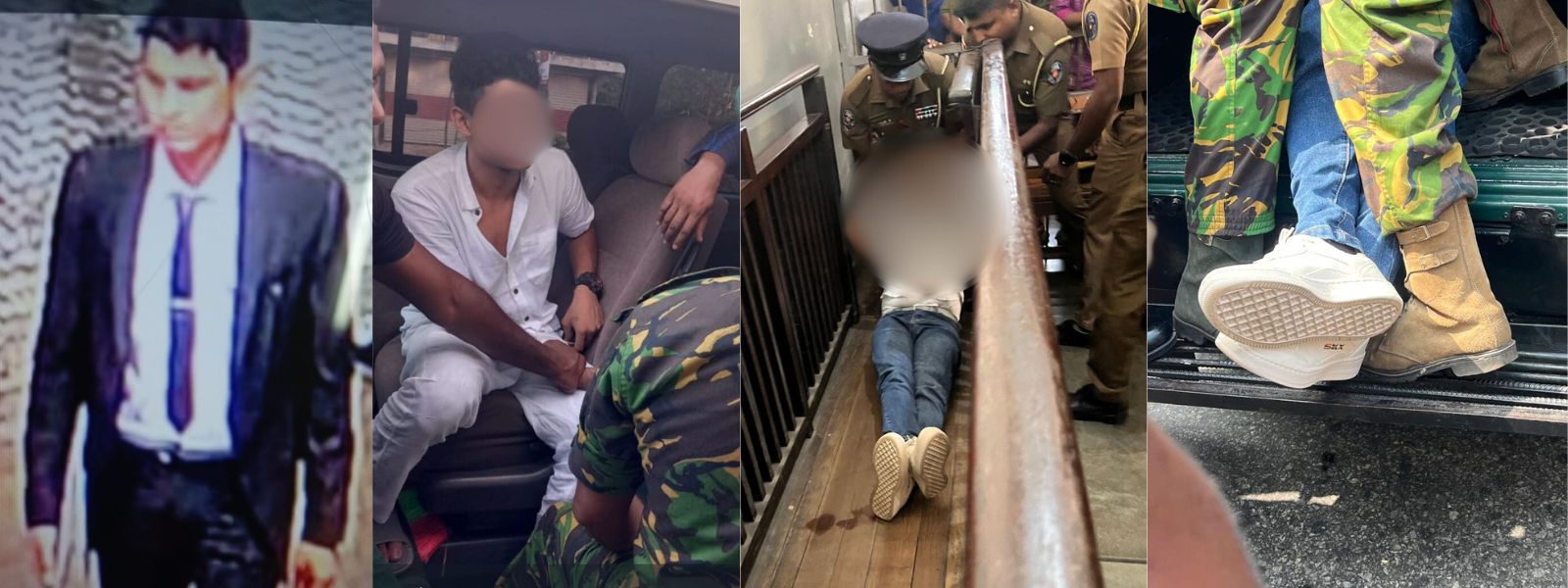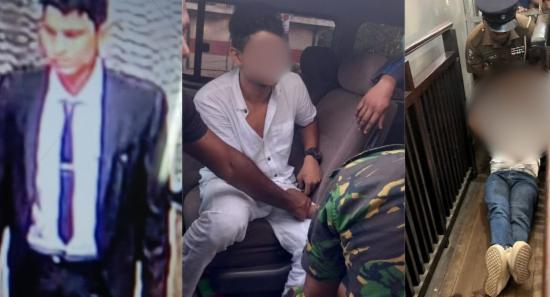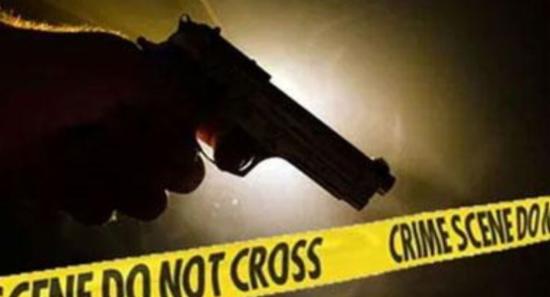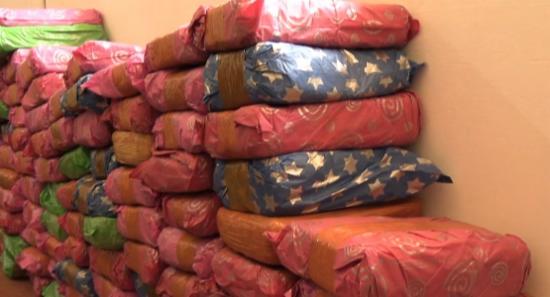.webp)

Courtroom Murder of Crime Boss Sparks Political Debate
COLOMBO (News 1st); The recent murder of crime boss 'Ganemulle Sanjeewa' inside a courtroom has thrust the issue of gang conflicts into the political spotlight, raising concerns about national security and public safety.
Opposition Leader Sajith Premadasa addressed Parliament, emphasizing the threat these murders pose to national security.
He stated, "This is indeed a significant issue for national security. The culture of murders among these gangs is a serious threat. When that heinous murder occurred in the courtroom, several media outlets had the color image of the woman involved, and the intelligence report, along with a color photo, was available. The intelligence report had been received by the security and law enforcement agencies. We were informed in this assembly that the attack was planned in the Gampaha area. Given the information on national security and the reports with color photographs, I believe the country needs a clear explanation regarding this security lapse."
Former Minister Patali Champika Ranawaka countered this view, arguing that the situation does not constitute a threat to national security.
"Here, the terms 'national security' and 'public safety' are being confused. The involvement of these gang groups in murders and abductions is a breakdown of public safety. National security refers to threats like terrorism, coups, or the division of the state. What we see in Sri Lanka today is a public safety issue. Disarming and neutralizing these weapons without taking any action against those who obtained them is futile. There is no national security issue here," he said.
Sarath Weerasekara, who served as the Public Security Minister under former President Gotabaya Rajapaksa, expressed his concerns at a media briefing.
"Today, people are walking the streets with fear and suspicion. The reason is that since this government came to power, it has ridiculed and undermined the concept of security. They removed roadblocks, dismantled some checkpoints, and destroyed security posts. In simple terms, these actions were taken to please the gallery," he stated.
National People's Power MP Sunil Ratnasiri highlighted the irony of those who sacrificed over 300 innocent lives for power now speaking about national security.
"We never thought that when people went to church they would be seeking death. The people believed they were going to the safest place. Over 300 innocent lives were sacrificed for power. Although those former parliamentarians are no longer in Parliament, they are still active outside. Now, there are shootings in various places. If someone was giving evidence against them, they would be killed. Even the person who was living close to Namal Rajapaksa's ancestral house was killed, along with his two children. Namal Rajapaksa came to Parliament crying and shouting that national security is at risk. I said in Parliament that the person who planned the murder of Club Wasantha, cried the most after the murder. Those who planned the murders, created the culture of killings, and did violent things to maintain political power are now shouting in Parliament that national security is at risk," he said.
Nalin Bandara, who was the Deputy Minister during the Easter Sunday attacks, also shared his views in Parliament.
"Security is needed. When bringing these books, we need to look inside a bit. If the book is cut and the inside is hollow, it is alarming. You have transferred around 180 people across the country, and we suspect that this has increased gang activities. We know that today the gangs have raised their heads. I am not saying you are responsible, but it has reached a level where it cannot be controlled," he remarked.
MP Lakshman Nipunarachchi responded in Parliament, reflecting on the historical context of gang violence.
"It started with bicycle chains, and it led to the complete suppression of the July strike. The underworld of those who used bicycle chains for suppression is now at the forefront. There was a J.R. Premadasa government. Sometimes I wonder if the sons of those fathers who are in Parliament today understand what happened. Sotti Upali came during JR's Government, Baddagane Sanjeewa came during Chandrika's Government. From there, it was Wambotta, Bonchi Ranja, Carrot Wimala, and every vegetable stand had someone in the underworld. If there is a conflict between the underworld gangs, why are the MPs in Parliament afraid? Why do MPs need protection when the underworld is fighting? It proves that there is a connection between the underworld and politicians," he stated.
Other Articles
Featured News





.png )









-781110_550x300.jpg)

-779769_550x300.jpg)
-779763_550x300.jpg)








.webp)






